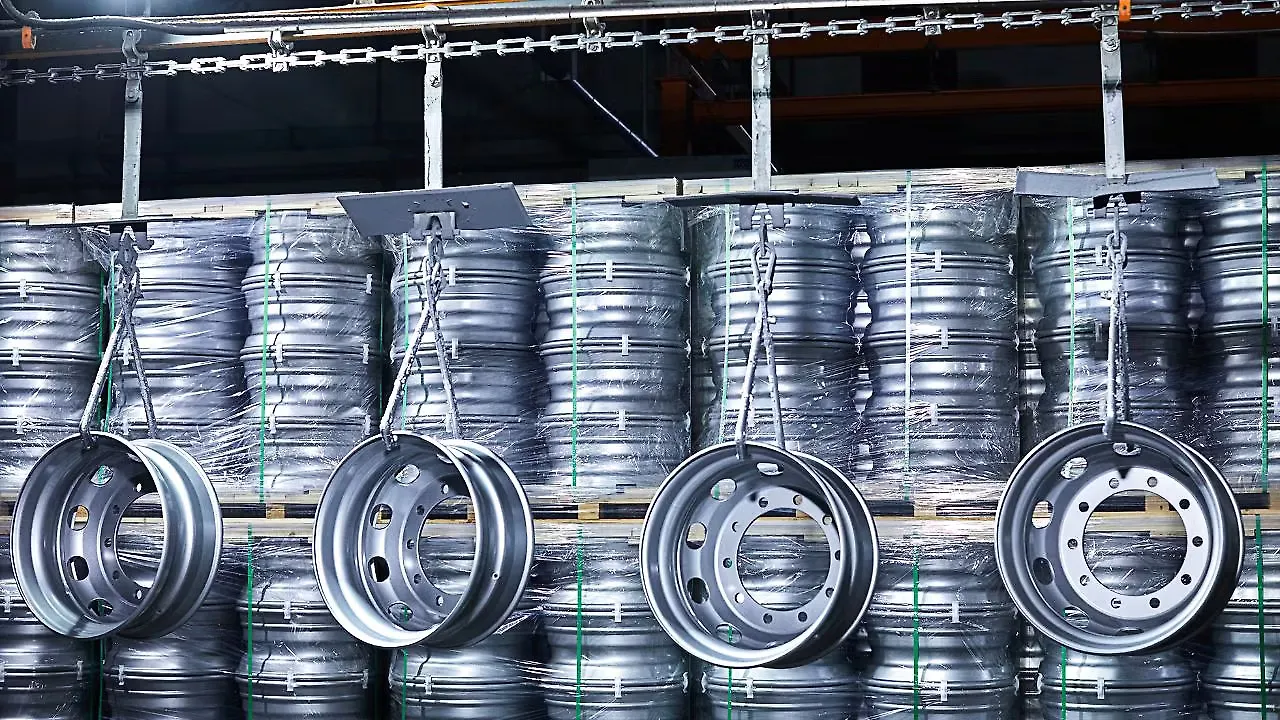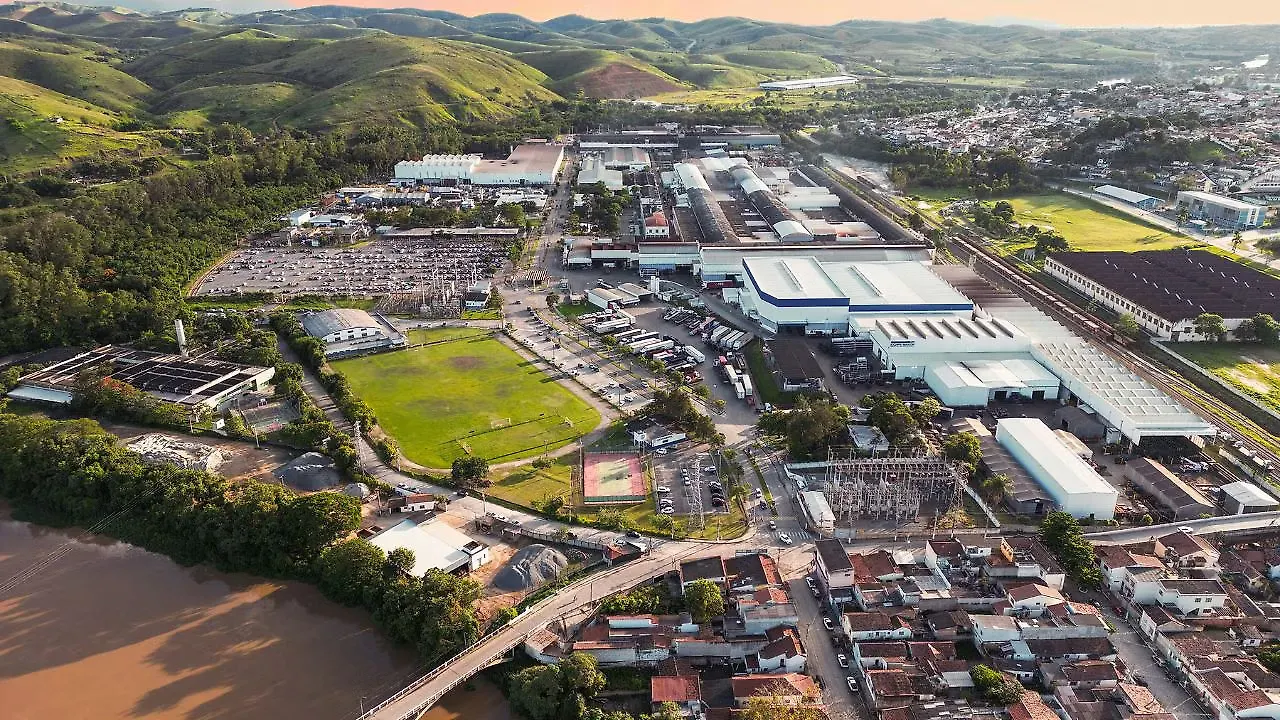
Pieter Klinkers serves as the CEO of Maxion Wheels, the world's largest manufacturer of wheels for passenger cars, commercial trucks, trailers, as well as agricultural and military vehicles. Under his strategic leadership, the company has expanded its product portfolio and global presence, consistently adapting to the evolving needs of its customers. Maxion Wheels now operates 24 production facilities and 7 offices across 14 countries, delivering competitive solutions worldwide.
Manufacturing steel and aluminum wheels comes with several challenges while also being energy-intensive. How do you overcome these challenges?
Manufacturing steel and aluminum wheels presents challenges in both processes and energy efficiency, given the high energy consumption involved. We’ve taken the lead in addressing this by adopting solar energy, ensuring both sustainability and social responsibility.
Competitiveness is key and it's ingrained in our DNA. With over 100 years of wheel-making experience, continuous improvement has been essential to our success. We constantly innovate and refine our processes, focusing on what benefits both our customers and us.
Do you see opportunities to make aluminum wheels using additive manufacturing, instead of traditional forging and casting?
While it's technically possible, additive manufacturing isn't competitive for mass production. We produce 50 million wheels, and 3D printing simply takes too long. However, it's useful for prototypes.
Aluminum prices can change a lot, making it hard for manufacturers to stay competitive. How do you handle this challenge?
Managing aluminum costs is less of a challenge for us because it's tied to the London Metal Exchange (LME), so our contracts with suppliers and customers account for those fluctuations. While there may be small short-term variances, it's largely managed through these contracts. Steel is handled differently, sometimes with specific contracts and sometimes without, but with over 100 years of experience, managing raw material costs is part of our DNA. We work closely with our customers globally, including in India, to ensure fair pricing.

How do you handle environmental regulations, like emissions and waste management, in the manufacturing of steel and aluminum wheels?
We focus heavily on improving our yield rate, which refers to the number of wheels that pass quality checks on the first attempt. Some can be reworked, but others become scrap and need to be remelted, especially with aluminum wheels. Optimising this process is a top priority in our operational excellence efforts. Our global network is key to this—our teams in India collaborate with colleagues in Brazil, Italy, and Thailand, learning from each other to implement the best practices. This global knowledge-sharing helps us continuously improve, though we know perfection is a long-term goal.
Do you think sustainability and profitability can go hand in hand?
Absolutely, it's the only way forward. We call it 'affordable sustainability.' While we can produce very green steel and aluminum wheels today, if they're too expensive, customers won't buy them—just like with electric vehicles. Without affordability, sustainability efforts won’t gain traction. If we can strike the right balance between sustainability and cost, the adoption will be strong. But if sustainability means higher prices for the end customer, the impact will be minimal. It has to be a balance of both.

Many OEMs have already begun sourcing green materials. How are you approaching this trend?
We're focusing on recycling materials and some customers are willing to pay a small premium for greener options, but it's a limited number. Our capacity to be more sustainable exceeds what customers are currently willing to pay. We're committed to our 'Roadmap Zero' plan, aiming for zero emissions by 2040, with key milestones like a 30% reduction by 2030 and 70% renewable energy by 2035. We're on track, but we're focused on achieving these goals affordably. The key is balancing sustainability with cost-efficiency to drive wider customer adoption.
Your goal is to reach zero emissions by 2040, but you rely heavily on raw materials like castings, aluminum ingots, and steel sheets. Does this make it easier for you to 'green' your supply chain? What’s your roadmap for achieving this?
It's not simple—if it were, everyone would be doing it. The challenge isn’t in going green, but in doing so affordably. We can collect and remelt used wheels, but the cost of cleaning the metal and setting up the collection process would make the final product too expensive, with little customer traction. The key is finding a cost-effective way to recycle wheels without adding too much cost. While we’ll get there, it requires more time and effort than just paying double for green steel, which isn’t sustainable in the long run.Scope 1 and 2 emissions are generally manageable within a company's own operations. However, Scope 3 is more complex, as it involves the entire supply chain and raises questions of affordability and willingness to pay. Balancing sustainability with cost in Scope 3 is where the real challenge lies.
What have you learned from the supply chain crisis caused by geopolitical issues?
Our strategy has always been to prioritise local production where there's a strong automotive base, like in India. While we do export when opportunities arise, we’re not reliant on exports, unlike some competitors who depend heavily on it. Our focus is on the local market, with exports as a bonus.
From a supply chain perspective, we avoid relying solely on distant imports. We maintain multiple suppliers, both local and international, ensuring we're not dependent on a single source. This approach has helped us manage disruptions effectively, with no major supply issues affecting our customers.
Also Read:
Indian Maxion Plant Sets Global Benchmark, Inspires Innovations Worldwide